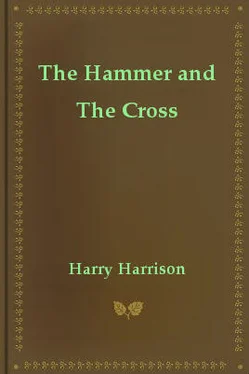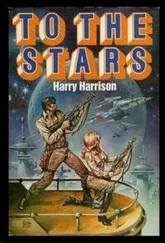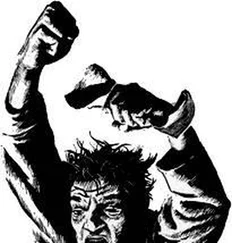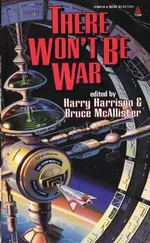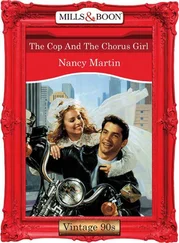He walked toward them, the padding of his soft seaman's shoes audible in what had indiscernibly become silence.
He reached the four men. “Greetings!” he said, pitching his voice loud for the audience clustered around and behind him. “I have news. News for the sons of Ragnar.”
One of the four glanced over his shoulder at him, went back to paring his fingernails with a knife. “Great news it must be, for a man to come to the Braethraborg without invitation or passport.”
“Great news it is.” Brand filled his lungs and controlled his breathing. “For it is news of the death of Ragnar.”
Utter silence now. The man who had spoken continued his paring, intent on his left index finger, the knife slicing, slicing. Blood sprang out, the knife cut on down, down to the quick and the bone. The man made no sound and no movement.
A second one of the four spoke, picking up a stone piece from the checkerboard to make his move, a powerful, thick-shouldered man with grizzled hair. “Tell us,” he remarked, his voice carefully unperturbed, deliberately refusing to show unmanly emotion. “How did our old father Ragnar die? For it is not to be surprised at, since he was getting on in years.”
“It all began on the coast of England, where he was wrecked. According to the story I heard, he was caught by the men of King Ella.” Brand changed his voice slightly, as if to match, or to mock, the second Ragnarsson's studied pretense of imperturbability. “I do not suppose they had much trouble, for, as you say, he was getting on in years. Maybe he offered no resistance.”
The grizzled man still held his draughtsman, his fingers closing on it tighter, tighter. Blood spurted out from under his fingernails, splashed on the board. The man put the piece down, moved it once, twice, lifted the captured draughtsman to the side. “I take, Ivar,” he remarked.
The man he was playing with spoke. He was a man with hair so fair it was almost white, swept back off his pale face and held with a linen headband. He looked at Brand with eyes as colorless as frozen water, under lashes that never blinked.
“What did they do once they had caught him?”
Brand looked carefully into the pale man's unblinking stare. He shrugged, still elaborately unconcerned.
“They took him to King Ella's court at Eoforwich. It was no great matter, for they thought him only a common pirate, of no importance. I believe they asked him some questions, had some little sport with him. But then, tiring of him, they decided they might as well put him to death.”
In the dead silence Brand studied his fingernails, conscious that his baiting of the Ragnarssons had almost reached its climax of danger. He shrugged again.
“Well. They gave him to the Christ-priests in the end. I expect he did not seem worthy of death from the warriors.”
A flush shot into the pale man's cheeks. He seemed to be holding his breath, almost choking. The flush deepened, deepened till his face was scarlet. He began to sway to and fro in his chair, a kind of coughing coming from deep in his throat. His eyes bulged, the scarlet deepened to purple—in the dim light of the hall, almost to black. Slowly the swaying stopped, the man seemed to win some deep internal battle within himself, the coughing died, the face ebbed back to a startling pallor.
The fourth man who stood by his three brothers, watching the draughts game, was leaning on a spear. He had not moved or spoken, had kept his eyes down. Slowly now he raised them to look at Brand. For the first time the tall messenger flinched. There was something in the eyes he had heard of but had never believed: the pupils astonishingly black, the iris around them as white as new-fallen snow—startlingly clear—and surrounding the black totally, like the paint around an iron shield-boss. The eyes glinted like moonlight on metal.
“How did King Ella and the Christ-priests decide to kill the old man, in the end?” asked the fourth of the Ragnarssons, his voice low, almost gentle. “I suppose you will be telling us it did not take much doing.”
Brand answered bluntly and truthfully, taking no more risks. “They put him in the serpent-pit, the worm-yard, the orm-garth. I understand there was some little trouble, as to begin with the snakes would not bite and then—from what I heard—Ragnar bit them first. But in the end they bit him and he died. It was a slow death, and no weapon-mark on him. Not one to be proud of in Valhalla.”
The man with the strange eyes did not move a muscle. There was a pause, a long pause, as the intently watching audience waited for him to make some sign that he had heard, for him to show some failure in self-control like his brothers. It did not come. The man straightened finally, tossed the spear he had been leaning on to a bystander, hooked his thumbs in his belt, prepared to speak.
A grunt front the bystander, a grunt of surprise, drawing all eyes to him. Silently he held up the tough ashwood spear he had been thrown. On it men could see indentations, marks where fingers had gripped. A slight hum of satisfaction ran round the hall.
Before the man with the strange eyes could speak, Brand interrupted, seizing the moment. Pulling his mustache thoughtfully, he remarked, “There was one other thing.”
“Yes?”
“After the snakes had bitten him, as he lay dying, Ragnar spoke. They did not understand him, of course, for he spoke in our tongue, in the norroent mal , but someone heard, someone passed it on; in the end I was fortunate enough to come by it. I have no invitation and no passport, as you said just now, but it occurred to me you might be interested enough to want to know.”
“What did he say, then, the old man dying?”
Brand lifted his voice loudly so that it filled the whole hall, like a herald issuing a challenge. “He said, ‘ Gynthja mundu grisir ef galtar hag vissi.’ ”
This time there was no need to translate. The whole hall knew what Ragnar had said: “If they knew how the old boar died, how the little pigs would grunt.”
“So that is why I came uninvited,” called Brand, his voice still high and challenging. “Though some told me it might be dangerous. I am a man who likes to hear grunting. And so I came to tell the little pigs. And you must be the little pigs, from what men tell me. You, Halvdan Ragnarsson”—he nodded to the man with the knife. “You, Ubbi Ragnarsson”—the first draughts-player. “You, Ivar Ragnarsson, famous for your white hair. And you, Sigurth Ragnarsson. I see now why men call you Orm-i-auga, the Snake-eye.
“It is not likely that my news has pleased you. But I hope you will agree that it was news you should be told.”
The four men were on their feet now, all facing him, the pretense of indifference gone. As they took in his words, they nodded. Slowly, they were beginning to grin, their expressions all the same, looking for the first time as if they were all a family, all brothers, all sons of the same man. Their teeth showed.
It was the prayer of the monks and minister-men in those days: Domine, libera nos a furore normannorum —“Lord, deliver us from the fury of the Northmen.” If they had seen those faces, any sensible monk would have added immediately: Sed praesepe, Domine, a humore eorum —“But especially, Lord, from their mirth.”
“It was news we should be told,” said the Snake-eye, “and we thank you for bringing it. At the start we thought you might not be telling all the truth about this matter, and that was why we may have seemed displeased. But what you said at the end—ah, that was our father's voice. He knew someone would hear it. He knew someone would tell us. And he knew what we would do. Didn't he, boys?”
A gesture, and someone rolled forward a great round chopping block, an oak trunk sawn off. A heave from the four brothers together, and it crashed down firm on the floor. The sons of Ragnar clustered round it, facing their men, each raising one foot and placing it on the block. They spoke together, following the ritual:
Читать дальше
